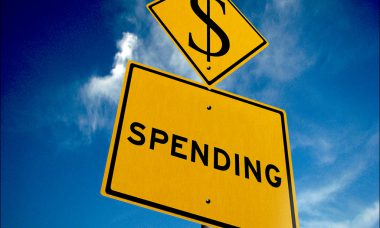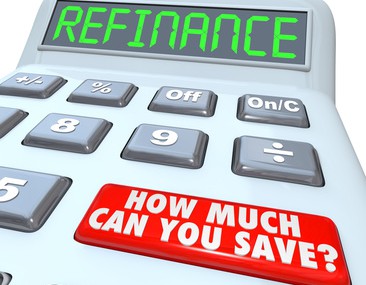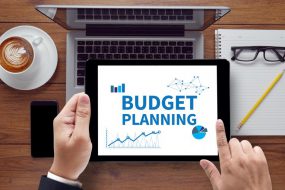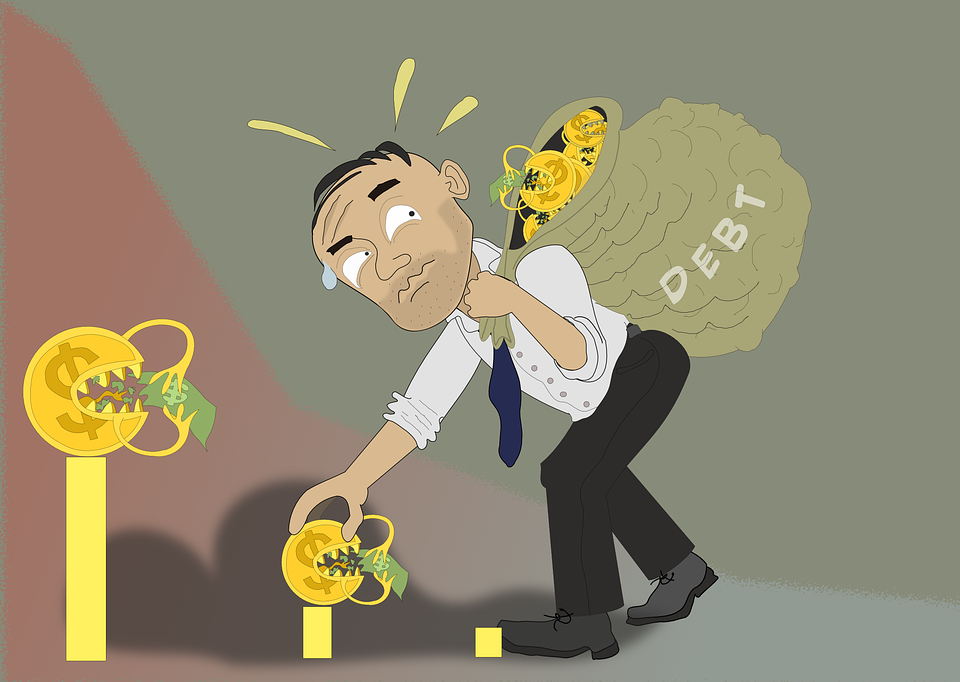
by admin | Bankruptcy, Consumer Proposal, Credit Counseling, Uncategorized
Being in debt is the last thing that anyone ever wants. Somehow it’s something all of us end up being in one way or another. The economy is just not that good and no matter how hard we work to make ends meet, sometimes it is just not enough. Inevitably have to rely on money granting genies.
However, there comes a time when we all think of paying it off and starting fresh with no burden on our shoulders. We make plans and lists of things we would not do in order to pay back the amounts we owe so we can finally move forward.
Just to make the process easier, here are the three basic and easy ways presented which you can work with to lessen the burden from your hard-working shoulders.
Cut Down The Expenses – Temporarily
The first instinct that we feel when we are in such a situation, Is to cut back on expenses in order to save more. And that should be the first step. You cannot start saving money to pay off your loans by cutting down impulse buying decisions. You do not have to put a hold on every expense but only those without which you can still go about your day, for example eating out, online shopping, ordering late-night food, or buying that green scarf. Of course, this will only be for the time being, until you save enough and pay off at least some significant amount of your loans.
Get A Side Job
If you are working a shift in the day and have enough time at hand to do some extra work, it is always a good idea to take on some part-time jobs to get in that extra cash. You can freelance on the internet for writing companies, for digital advertising companies, or simply take neighbors’ dogs out for a walk every morning. This will take away the extra pressure off you that comes with trying to live on a budget. This way you will have more to save and a little extra to spend on yourself.
Take Care Of The Small Loans First
When in debt, we are tempted to pay off the larger ones first. However, that often leads to the accumulation of many small loans, which ultimately become huge. Therefore, it would be wise to list down all your loans. Separate big and small and begin with paying off the small ones until you are done with them, then move on to the bigger ones. This will not only make it easier to focus on paying off larger debts, but it will also allow you to create a comprehensive strategy with complete peace of mind. Organizing commotions and responsibilities always help.

by admin | Uncategorized
When we think of credit scores, the first thing that comes to our mind is how will it impact our access to lines of credit. However, that is not all that your credit score accounts for.
Your banks and financing companies are not the only ones who look into your credit history and dig up your reports. There are more people interested in your reputation in the credit world. Whether you are opening a retail account, renting an apartment, or even having a car financed, our credit score will always be at the forefront here.
Your credit score is more than a three-digit number. It determines the course of your life in many ways. Here are a few ways in which a poor credit score can be an issue for you;
You May Not Get The House You Desire
Your credit score can be an issue when the time comes for you to buy or rent your apartment or a house. When renting a house, the first thing the house owner sees is your income, so he can judge whether you would be able to really afford it or not.
The second consideration is your credit score! A house owner would not want to rent out to someone who does not have a proven track record for timely payments. So yes, your credit history and your credit score matters here.
You Don’t Get Your Loans Approved
Whether it is a student loan, or a business loan or even a mortgage, if you have a bad credit score, you are less likely to be approved as your credit score would indicate irresponsibility when it comes to making payments. It is not that you will not get the loan. Maybe you will. It is not entirely off the table for you. However, you will not be in their good books, which is why they will charge you higher than usual interest rates just in case.
It Affects Your Bills
You may not have thought about your credit score affecting something as trivial as buying things. But it does. The purchases you make, your monthly subscription, your club memberships, things you buy online, they all will probably charge you higher prices just to make sure they don’t face loss at your hand in case you can’t make the payment.
Your Next Job Might Not Be As Easy To Come
It is not a common practice in every state, but research shows that almost 46% of companies look into the candidate’s credit reports while considering hiring them. It is to make sure that you will not be likely involved in any kind of fraudulent activity, any embezzlement, or any property theft.
Your credit score has the power to affect even the most trivial aspects of your life. A bad credit score is always an issue. Over time it has somehow become the standard to measure a person’s credibility not just limited to banking but anywhere in life.

by admin | Bankruptcy, Consumer Proposal, Credit Counseling, Uncategorized
5 Things You Must Look For in a Debt Consolidator
Tight economic conditions, inflation, and rising expenses can lead anyone to sign up for some loans. It is almost impossible in today’s times to spend a lifetime without ever getting a loan of any kind. The banks and other creditors know this very well and therefore, they compete with each other to provide different loan products catering to different areas of life.
You can easily find yourself applying for some of these attractive loans and before you know it, your loan bills go through the roof. In case of inability to repay those loans, you are left with a huge amount of debt and debt ultimately translates into financial crisis. Therefore, it’s important that you try to clear your debts as soon as possible using the services of a debt consolidator.
A good debt consolidator helps you get out of your bad financial situation and lead you towards stability. However, you must research well on what kind of debt consolidator is required to meet your needs.
While you are at it, we list here a few things that you must look for in a debt consolidator.
1. Financial and Legal Knowledge
A debt consolidator must be knowledgeable regarding all the matters of loans and debts. They must be able to direct you towards how you can effectively combat your specific debt issues. They use their knowledge to guide you to carry out better negotiations with creditors. This is definitely among the top qualities of a debt consolidator.
2. Empathy
Any debt consolidator who is arrogant, rude, or judgmental towards you while handling your matters will not be able to help you. Good qualities of a debt consolidator include empathy and understanding. Falling in debt is normal and a good debt consolidator knows this well. They will assist you on practical grounds after understanding the nature of your debt and other financial circumstances.
3. Ability to Be Reasonable With Plans
The first and most important thing your debt consolidator will do is come up with a repayment plan. It’s important that the plan your debt consolidator suggests includes an affordable interest rate. If those interest rates are still beyond your budget, that plan will fail. Therefore, the ability to get the full picture of your current and future potential finances while laying out a plan is among the most valued qualities of a debt consolidator.
4. Flexibility
A certain debt problem can be tackled through different approaches. For example, Canadians have multiple methods and options for consolidating their debt, such as Debt Consolidation Program, Debt Consolidation Loan, Home Equity Loan, etc. Not all options are available to everybody and that’s where a good debt consolidator will provide you with expert advice. One of the key qualities of a debt consolidator is that they are flexible with options.
5. Experience
Nothing can beat experience. A debt consolidator who is well-experienced in this field will give you better advice and lead you to the solution in a quicker and effective way. Do some research on how long that debt consolidator has been in the business and how effectively they have been able to help their clients. The economic cycle of the organization will give you an idea.
These are some of the qualities of a debt consolidator that you must consider if you want to avail the best of services.

by admin | Uncategorized
When it comes to budgeting and managing your money, it is important to make sure that you keep track of everything that goes along with, it. From the different transactions you make to various business expenditures that you decide upon day in and day out, it must be accompanied by a billing statement or a purchase order receipt or any evidence of your recent expenses. It is important that you always have that evidence to serve as a back-up in case of emergency situations that require the presentation of an official receipt. Having an official copy of expenditures made can also give you a way of managing your finances and resources by keeping track of their monthly uses, therefore enabling you to prepare a budget plan for the future coming months being able to lessen a number of expenditures along with it.
How to Budget?
Carefully planning and implementing a living realistic budget can prove to be one of the most the effective tools in your personal financial management plan. See below for a list of ways to help you budget your money.
- Identify Your Expenses. Making sure to get a foothold of what your monthly expenses are is the primary step in building a budgeting plan. Start out by pointing out your fixed monthly costs like rent payments, credit card balance payments, and business or personal loan payments, and add them to your variable monthly costs also know as your daily-living costs including food, entertainment, utilities, and clothing expenses. You can also include the rare and infrequent expenses you make like the vehicle insurance and car repair; taxes; special events then divide them for 12 months to get the average monthly expense cost. Be sure to list all your expenses use your bill and bank statements for exact reference leaving out any gaps.
- Identify your Income. Your pay stubs will come in handy when you try to identify your tax-paid, take-home monthly income. Note that individuals who get paid every 2 weeks need to multiply the pay by 26 and dividing it by 12 to get your net monthly salary. You must include all secondary sources of your income be it commissions, a second job, or alimony in it.
- Mark the things you want to save for. By setting realistic and detailed expected monthly goals, you will be able to measure the success of your budgeting plan and be inspired to keep on moving forward with it.
- Setting the Budget. Get a total of your income and expenses, and figure out if you need to cut some of your expenses or try to get an increase in your salary making the budget plan work for you. Set up a budget plan sheet to be able to track everything you do, from your successes and your slip-ups, and be able to work around it.
Budgeting monthly expenses are a great way to take control of your financial status and your business enabling you to allocate and carefully plan out where and how you intend to make use of your expenses in a cost-effective plan that could prevent you from encountering certain financial setbacks like bankruptcy in the future.

by admin | Uncategorized

Whether it is a credit card balance, a student loan, an auto loan, or a mortgage, most of us have some sort of debt. As long as you’re trying to pay it off, your debt should not concern you too much. On the other hand, if you’ve allowed debt to accumulate so much so that it’s having an effect on your health then you may need to mend your ways and quick. You’re here for a reason and that reason is finding out whether you have too much debt. How can do that? Let’s take a look.
Determining your debt-to-income ratio is one of the easiest ways to find out whether you have too much debt. The percentage of your monthly income that goes towards debt payment is referred to as your debt-to-income ratio. According to many financial experts, the average household debt in the United States is $10,000. Your debt is likely is likely to be somewhere around that figure. Following are some signs that you have too much debt.
All your money goes towards debt payment
As mentioned earlier, determining your debt-to-income ratio is a good way to find out whether you have too much debt. Basically, if most of your monthly income is going towards debt payment then there’s a good chance that you have too much debt. In an ideal situation, you should not spend more than 35% of your monthly income on debt payments. However, if you spend more than half of your monthly income on payment of debts then you, my friend, have too much debt.
You’re living a paycheck-to-paycheck lifestyle
If you’re living a paycheck-to-paycheck lifestyle then a major reason for it could be too much debt. Generally, people who have too much debt aren’t able to save any money. The reason for this simple: most of their monthly income is spent on debt payment and the remaining goes towards utilities/groceries. So, if you’re always without money at the end of each month, there’s a good chance that you have too much debt.
Your debt is causing you health problems
If your debt starts to cause health problems in you, it’s a good sign that you have too much debt. Too much debt can cause you to miss debt payments. When you’re behind on payments, creditors are likely to call you for collection. Thinking about getting a collection call from creditors can keep you awake at night and cause anxiety/stress in you. This is turn will cause health problems in you.
You’re denied new credit
Your credit rating significantly depends on how much debt you owe. A poor credit rating indicates that you have too much debt.
As seen above, too much credit can damage your credit rating. If you have too much debt then get in touch with a credit counselor to reduce your debt and improve your credit rating.

by admin | Bankruptcy, Consumer Proposal, Credit Counseling, Uncategorized

It is all too easy to sink deeper and deeper into the proverbial ‘debt trap’ thanks to uncontrolled spending, however, all is not lost as given time as well as life style changes it ‘is’ quite possible to take control of your runaway financial obligations and live a (relatively speaking) debt free life.
But the question remains as to how to go about doing that? A reputable credit counselling service or agency may be able to help. They will both advise as well as educate you and in other ways help you in every way possible to make sure that you not only get out of the ‘proverbial debt trap’ but change your spending patterns to such an extent that it does not happen ever again.
Here are a few tips that, with the active guidance and advice of your chosen credit counsellor that would not only help take care of your problems in the short term but in the long run act as guide posts to make sure you do not repeat the same vicious cycle.
- Houston: We have a problem
When it comes to taking care of runaway debt, you have to look in the mirror and firmly understand that your debts did not accumulate on their own. But rather, they were a direct result of your very own spending patterns. The age old adage of “spend only what you earn yourself” does hold true to this day. Unfortunately, it’s not as easy as it looks, we all have desires and the quest to buy the latest LCD or LED 3D TV on a credit card that you know you are not in a position to afford , may well prove irresistible.
This is where financial discipline comes in, rather than taking a short cut, and using your credit card to buy that TV, it would be more productive to wait and save for it with your own money. (It just might make you feel better about yourself too)
2. No short cuts
You must keep in mind that a credit counsellor is not a magician and once you go to him all your financial problems will vanish like they have never existed. Remember, he is first and foremost an advisor. And ultimately, it is’ you’ who have to follow his advice for it do any good. You may well have to forgo many a luxury before you would be out of the woods.
3. Consult a professional before the problem even occurs
Before making a really large purchase (for example a car), it is advisable to take at least a few sessions with the credit counsellor you are most comfortable with. He or she will help you decide how much you can afford to shell out on credit and how much should be a lump sum payment, so that you don’t end up being at the beck and call of your creditors.
However, it is pertinent to note that ultimately it is ‘your’ personal responsibility to take care of your own loans. Failure to do so would hurt you more than any one else.











